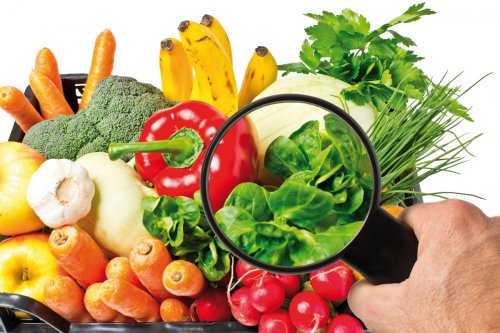
Interview with Dr. Paolo Giomi Technical Inspector of Bioagricert.
What does it mean to be an organic operator?
All farmers, ranchers, processors, traders, who use the term BIO, Organic, ECO, Ecological, are obliged to follow the regulation of the Council of the European Union 834 of 2007 focusing the general principles, objectives, standards of production in the context of biological and prohibitions.
Organic production must respect natural systems and cycles, it is necessary to aim for sustainable production, as far as possible, using biological and mechanical processes, through a land-related production and avoiding the use of genetically modified organisms.
If an operator wants to cultivate, produce and commercialize biological, he shall notify, namely communicate, to the competent authority his own business by choosing an approved inspection body which, in the case of Probios is Bioagricert.
The rule prohibits the use of pesticides of chemical synthesis and, where you can not manage the production through the self-defense of the ecosystem, the farmer uses pesticides and fertilizers of natural origin.
What is the role of the inspection corporation?
The mechanism is complex and involves many gears: the manufacturer / marketing company, the public authority and the control bodies. The company that voluntarily choose to produce or trade in organic products is subjected to a series of additional mandatory restrictions, where the most significant change is to undergo an independent external audit, performed by an approved body such as Bioagricert.
In order to comply with the standard the company must put in place a self of all those who are additional risks, such as the use or presence of pesticides or of GMOs, and must avoid contamination with the conventional product. At this point comes into play Bioagricert that, once established at an early stage the ability to produce bio, conducts periodic audits to verify what is stated in the company.
The control is effective, can consumers be tranquil?
The control is based on two distinct phases: the inspection in the company in which you make a sample taking of the product that will be submitted for laboratory analysis and, subsequently, the evaluation of the documentation.
If irregularities or non-compliance aren’t noticed, the Authority issues a certificate that allows the sale of the product. This document is recognized at European and international level for the sale of organic products. It is important to note that all the companies are inspected every year and that the number of visits and samples on the products depends on the size of the company, on the complexity of the production and cultivation. There are companies with 5 acres of natural meadows for grazing where it is carried out an annual inspection and vegetable farms with hundreds of acres where visits and sampling of the product are made more than once during a year .
Of course, the controls are not always routine, there are also some exceptional situations and are not always a bed of roses. The bio company must give us full access to all facilities, land and documents necessary to carry out our work: the impediment is punished with the most severe form which is the exclusion without power back into the control system.
It is said that it is not possible to make bio in Italy as there are many sources of pollution.
I guess that's another cliché. Unfortunately we are not in New Zealand, we are a densely populated and anthropized country.
Thus it becomes impossible to think of only having wood around. One of the critical issues for producers are the boundaries. These must be protected. If the boundaries are at risk, in other terms if the neighbor can contaminate a product by a treatment under the law, but not possible in the bio, you must maintain some buffer areas, from which the harvested product can not be sold as organic.
We have seen some scandal around some organic products, with a system of this type, how can this happen?
Assuming that in each context, unfortunately, there are those who do not respect the law, there have been irregularities in our industry too; there have been frauds that have unfortunately seen also involved control authorities and this should serve to raise the level of attention on the cross-checks between operators.
But you need to improve the exchange of data between authorized bodies.
Many products that do not comply are blocked and downgraded by the Control bodies and this is part of the effectiveness of the system.
Sometimes the media get incomplete information related to seizures of products by the Authority that in reality the relevant control bodies have previously locked.
The system then has certainly improvement margins: it would be desirable a synergy between trade associations, certification bodies and the ministry, in order to improve the whole system and exchange useful informations to ensure that the final consumer and all operators of the biological are increasingly protected.





